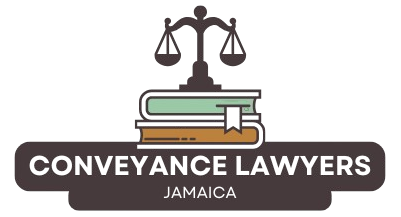Jamaican property laws form the bedrock of all real estate transactions and significantly shape the conveyancing process. A thorough understanding of these legal frameworks is essential for a secure and compliant transfer of ownership. At Conveyance Lawyers ja, our team of lawyers possesses in-depth knowledge of these laws, ensuring every transaction adheres strictly to the legal requirements and protects our clients’ interests.
Key Statutes
Several foundational Acts govern land and property matters in Jamaica.
Each statute lays down specific procedures and protections that influence how titles are searched, how documents are lodged, and how rights are enforced. By understanding the interplay among these Acts, buyers, sellers, and lenders can anticipate documentary needs, predict timelines, and budget accurately for taxes and fees.
Because legislation evolves, our lawyers routinely review recent court decisions and policy statements that interpret or amend these statutes, guaranteeing that every client benefits from the most current legal position.

Registration of Titles Act
The Registration of Titles Act is perhaps the most significant piece of legislation governing land titles and property ownership in Jamaica. It established the Torrens System of land registration, which provides a state-guaranteed Certificate of Title as conclusive proof of ownership. This Act outlines the procedures for title searches, registration of transfers, mortgages, and other encumbrances, making it central to the conveyancing process. Our team expertly navigates the intricacies of this Act to ensure your title is clear and secure.
Registration of Deeds Act
While the Registration of Titles Act primarily deals with registered land under the Torrens System, the Registration of Deeds Act applies to unregistered lands or “Common Law Titles.” This Act governs the registration of deeds, such as Deeds of Conveyance, that establish a chain of ownership for land not yet brought under the Torrens System. Although less common for new transactions, some older properties may still fall under this system. Our lawyers can advise on the necessary steps to transition such properties to a registered title.

Regulatory Bodies
Various government agencies play crucial roles in overseeing and facilitating property transactions.
Understanding which body controls each step helps parties avoid lodging documents in the wrong office or missing a statutory fee that could stall registration.
Our firm maintains direct contact points within these agencies so we can track applications, resolve queries swiftly, and keep deals on schedule.
National Land Agency
The National Land Agency (NLA) is the principal government body responsible for land administration in Jamaica. Its functions include the management of the Torrens System, the issuance and maintenance of Certificates of Title, conducting title searches, and the registration of all interests in land. The NLA is integral to every stage of conveyancing, from initial searches to the final registration of transfer. Our team works closely with the NLA to ensure efficient processing and compliance.
Local parish councils
Local parish councils play a significant role in real estate through their authority over planning, zoning, and property taxation. They are responsible for issuing planning approvals, managing local land-use regulations, and assessing municipal rates on properties. During due diligence, searches at the parish council are vital to ensure the property complies with local planning regulations and that there are no outstanding tax liabilities.
Recent Legislative Changes
Jamaican property laws are subject to updates and reforms, impacting conveyancing practices.
New regulations often aim to modernise land administration, close loopholes, or stimulate investment; failing to track these shifts can lead to miscalculated taxes or rejected lodgments.
Navigating these laws often requires professional help, which is why it’s important to understand the role of a conveyancer vs a real estate attorney.
Conveyance Lawyers ja monitors Parliamentary debates, Ministry circulars, and agency bulletins so that every file we manage reflects the latest statutory and procedural requirements.
Electronic lodgment rules
In an effort to modernise and streamline the conveyancing process, the National Land Agency has been implementing initiatives towards electronic lodgment systems. These digital transformations aim to reduce processing times, enhance efficiency, and improve accessibility for legal practitioners. Our team stays current with these technological advancements to provide the most efficient service possible.
Revised stamp duty rates
The government occasionally revises stamp duty and transfer tax rates, which directly impact the costs associated with property transactions. Keeping abreast of these changes is essential for accurate financial planning and compliance. Conveyance Lawyers ja provides up-to-date advice on all applicable taxes and fees, ensuring transparency in your conveyancing costs. Staying informed about legislative developments is crucial for effective conveyancing, and our team is committed to leveraging the latest legal knowledge to benefit our clients in Jamaica.
